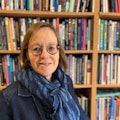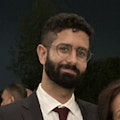Legacies of Learning: from Turath to Transformation
Education, pedagogy, and learning have been subjects of detailed discussions by Muslim authors from the early Islamic period to this day. This project draws on a range of historical sources in the Islamic tradition in order to investigate notions of learning and knowledge production in the medieval and early modern Islamic world.
The project aims to achieve this through an analysis of sources from disparate genres such as historiography, biography, hagiography, poetry, and training manuals, alongside texts that form the basis of intellectual historical inquiry such as religious and philosophical treatises, scientific texts, and mystical writings. By considering these writings together, the project develops an interdisciplinary framework that draws on methodologies of intellectual, social, and cultural history, applied theology, embodied ethics, and philosophy of religion.
Central to this investigation is an exploration of the lives and works of Islamic scholars, with a focus on their biographies, socio-political context, and institutional connections, as well as their intellectual work. The project draws on biographical texts in order to explore various aspects involved the production and transmission of knowledge in Islamic settings. These include bodily habits and etiquettes, material culture, devotional objects, and various media. By drawing on genres such as biography, hagiography, and training manuals, this project attempts to move beyond top down conceptions of knowledge production and investigate how knowledge production and transmission is negotiated and produced in different times, settings, and disciplines.
The scope of the project therefore encompasses periods of institutionalisation in the medieval and early modern periods, where tensions regarding approaches to knowledge production are heightened, and changes in attitudes towards learning are more prominent. These tensions are discernible in the context of the increased institutionalisation of madrasas and Sufi communities. These are points in time when Muslim thinkers considered in more detail what constitutes “legitimate” modes of learning against those that were considered non-normative or less valuable. These discussions therefore reveal areas of contention regarding knowledge production and transmission in premodern Islamic societies that offer valuable insights into premodern Islamic learning.
With a commitment to engage in public outreach, Legacies of Learning will also highlight how knowledge production and transmission in contemporary Muslim societies and spaces continues to change and adapt today. Knowledge transmission is not simply the transferral of text and ideas, it is multifaceted and includes uses of space, bodily habits and etiquette, material culture, recitation and performance, and devotional practices. It also depends on the circulation of objects, books, and people. The theoretical framework of the project will therefore offer ways to connect Islamic learning in the past with the questions that are pertinent to Muslim communities today. The insights drawn from analysing the past will therefore be brought into conversation with the various sites of Islamic learning in the present. We will therefore aim to produce content that engages Muslim communities today.
The project team

Professor Sophie Gilliat-Ray
Professor in Religious and Theological Studies, Head of Islam UK Centre
Advisory Board
The project is supported by a range of external advisors.
| Name | Institution |
|---|---|
| Dzenita Karic | University of Amsterdam |
| Nur Sobers-Khan | Exeter University |
| Liana Saif | University of Amsterdam |
| Pieter Coppens | Free University of Amsterdam |
| Omar Anchassi | University of Bern |
| Simon Leese | University of Amsterdam |
| Adam Bursi | Cornell University |
| Dr Fella Lahmar | Open University |
| Arnold Mol | Leiden University |
| Dr Fozia Bora | University of Leeds |
| Aslisho Qurboniev | The Aga Khan University |
| Dr Wisam Abdul-Jabbar | Hamad Bin Khalifa University |
| Dr Nadeem Memon | University of South Australia |
| Dr Justin Stearns | NYU Abu Dhabi |
| Dr Asad Q Ahmed | University of California, Berkeley |
| Dr Sonja Brentjes | Max-Planck Institute for the History of Science |
| Dr Farah Ahmed | University of Cambridge |
| Dr Hadiza Kere Abdulrahman | University of Lincoln |
| Dr Ebrahim Moosa | University of Notre Dame |
| Dr Recep Senturk | Hamad Bin Khalifa University |
Please take a look at our Legacies of Learning "Book Chat" podcast videos on YouTube.


